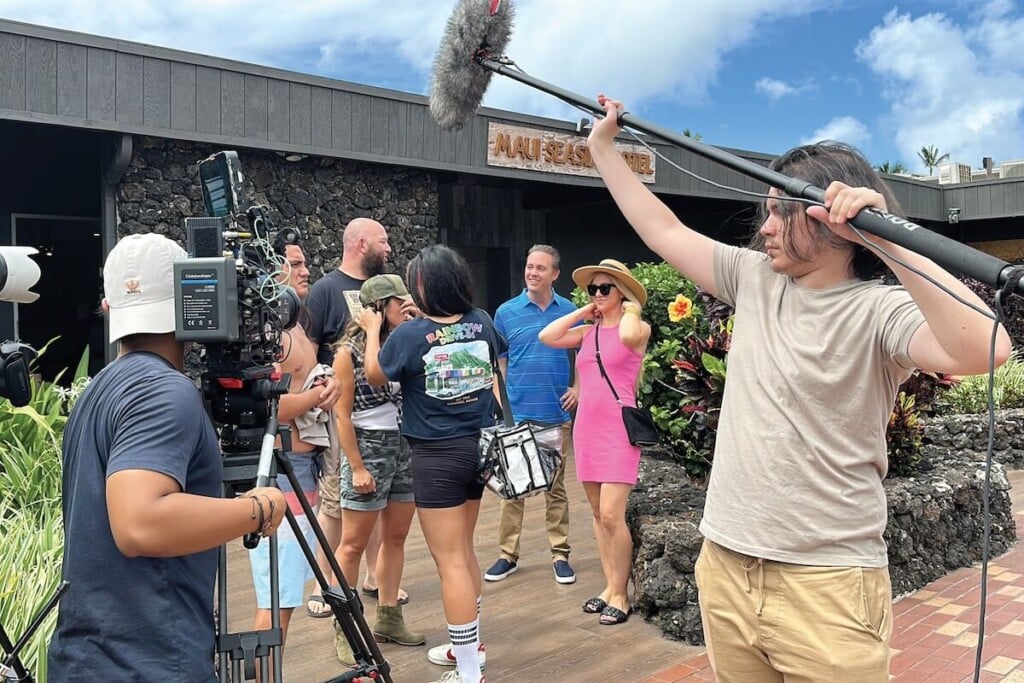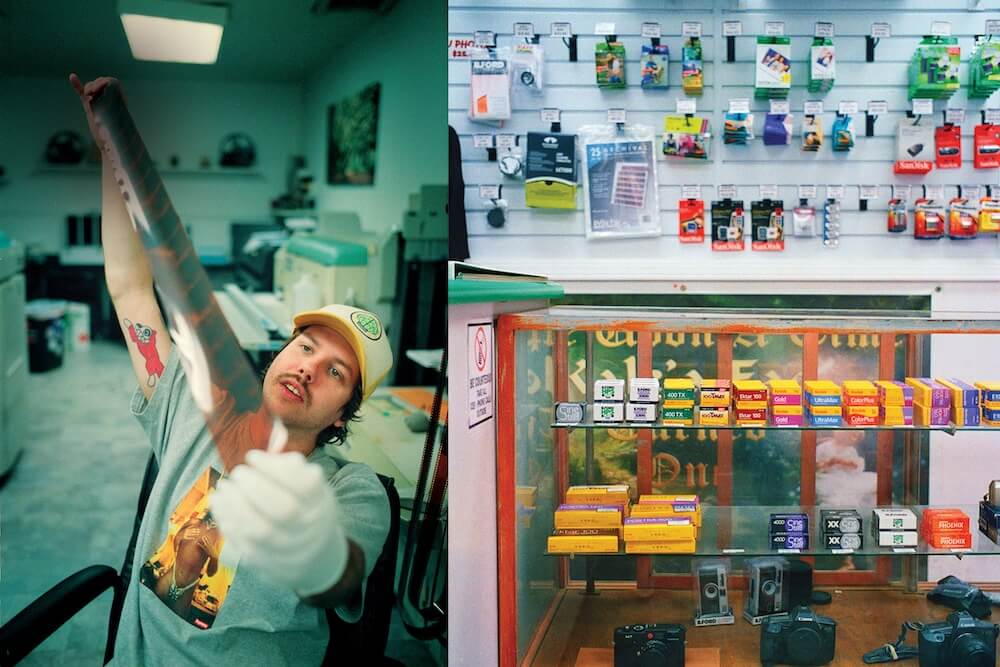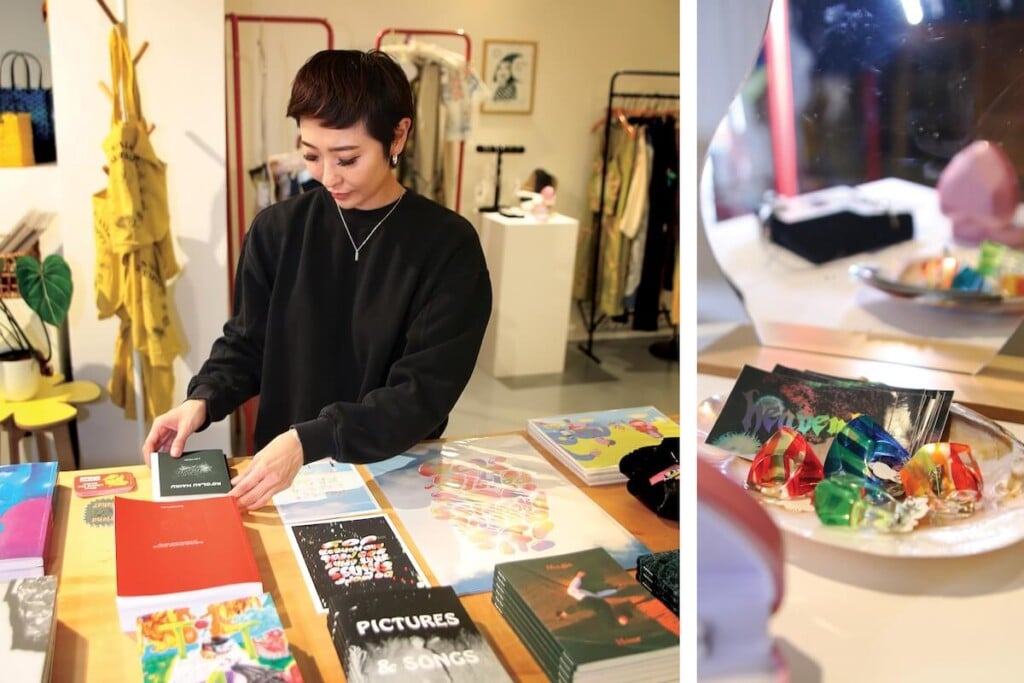Forget Hollywood: Why Three Maui Filmmakers Made Their Own Show
Season two of the comedy “Moku Moku” is now in production. It’s part of an effort to create a more visible local film industry.

Instead of waiting for Hollywood to come up with another film or TV project for the Islands, Kawika Hoke and his partners created their own.
All six episodes of the first season of “Moku Moku,” a half-hour comedy that follows three friends on Maui, aired on local TV station K5; the shows are currently streaming on Amazon Prime’s pay-per-view service and can be viewed for free, with ads, on Tubi. The second season is now being filmed on Maui. The show is produced by Laulima Studios, a Maui-based entertainment company launched in 2024 by Hoke, Jonathan Melikidse and Brad Starks. Hoke says Laulima Studios’ main goal is to prove Hawai‘i can produce films, TV shows and more, with local camera operators, directors, producers and all the other talent needed.
Hoke says Hawai‘i doesn’t have a huge platform, like shows produced in Hollywood. “We’re connected,” though, he says. “It’s a small enough industry where we’re all hopping over to each other’s shows, but there’s never been a need to band together, because we were kind of fixated on California.”
He looks to the global popularity of South Korean music, movies and fashion as inspiration for how to market a region’s talent internationally. Hawai‘i has a large talent pool, Hoke says, but struggles to keep creatives in the industry because they don’t get enough work.
“Hawai‘i makes hammahs every day. We are a hammah factory,” he says, using the new-school pidgin for hardworking and talented people. “We have a problem going on with Hollywood. … They don’t think that Hawai‘i has really good camera operators because of many misconceptions about who gets hired.”
He describes a catch-22-like situation: When big movies get filmed in the Islands, few local people are hired. The thinking is that they lack experience, so instead of pulling from Hawai‘i’s talent pool, producers fly in a lot of mainland professionals. If more local people were hired to work some of the smaller projects in the Islands, they’d eventually have the experience needed to move on to bigger projects. But that’s not happening either.
Hoke says his passion for organizing a Hawai‘i-based film industry and talent pool derives from his background. He grew up on the mainland, where both he and his family worked hard to stay connected to their Hawaiian identity. And as a son of engineers, he was taught to think outside the box to get things done.
The three founders of Laulima Studios met on the sets of independent projects on Maui. They talked about how Maui and Hawai‘i film creatives lack the competitive edge that is commonplace in Hollywood and other centers of entertainment. “That’s the other thing: A lot of artists don’t like being salesmen,” Hoke says.
“From a business standpoint, our studio is looking to do everything we can to give back to the community, as far as opportunity, as far as creating quality content that’s not just going to go straight to video and never heard of again. We really want to feed the next generation. We really just want to be useful.”
Starks says big-budget movies set in Hawai‘i typically have the same storyline: a long-term couple arrives, checks in at a high-end resort, they drink their weight in mai tais and they don’t go out.
“They, in short, don’t deal with the local community and people like us who live in Maui or Upcountry Maui, where our television show is placed,” Stark says. “They overhear the local population” instead of mingling with it.





